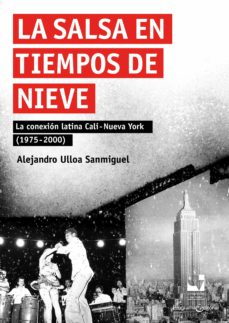
What is the connection between salsa and snow?
The book 'La salsa en tiempos de nieve. The Cali - New York Latin Connection (1975-2000)' explores the connection between drug trafficking and salsa.
What made drug trafficking infiltrate the salsa music recording and entertainment industry in New York in the 1970s?
This is the question that Colombian anthropologist Alejandro Ulloa Sanmiguel tries to answer in his latest book, La salsa en tiempos de 'nieve'. La conexión latina Cali-Nueva York 1975-2000, winner of the Alejandro Angel Escobar Award in social and human sciences in 2021.
Three parallels link Cali with New York from the 1970s to the end of the 20th century, in a link the author calls the Latin connection.
First, the salsa recording — and show business — led by the Fania company since 1964 in New York, which has one of its most important markets in Latin America through Cali.
Second, the cocaine industry, produced in Cali since the 70s (in addition to Medellin), which will have New York as its main market in the world, and the center of consumption and distribution to other North American cities.
RELATED CONTENT
Third, the migration of Colombians, including thousands from Cali and Valle del Cauca, who traveled to the Big Apple at the same time.
During the following decades, many immigrants, legal and undocumented, fell into the drug marketing and distribution networks in the United States, fully dedicated to the big business, and combining illicit activities and formal jobs, aspiring to the American way of life and longing to return to their country.
The convergence of the three dynamics, condensed in the salsa/narco-trafficking/drug addiction equation — had a great social, symbolic and cultural impact in Santiago de Cali. This is the thesis presented in the book, based on the findings of ethnographic research, studies related to the subject and on the life stories collected from different immigrants. Hot ethnography, wounded memory and traketa culture are some of the conceptual stakes the author risks in the anthropological study to understand a different facet of drug trafficking, mediated by salsa music.

"The study by anthropologist Alejandro Ulloa is serious and courageous. Especially considering that in our countries, from Mexico to Argentina, in relation to organized crime, there is a double standard that does not allow the truth to be revealed. And without truth, there will be no peace in Colombia or in Latin America," writes literary critic Fabio Martinez in the Colombian daily El Tiempo.
The book is available on ebook at casadellibro.com












LEAVE A COMMENT: